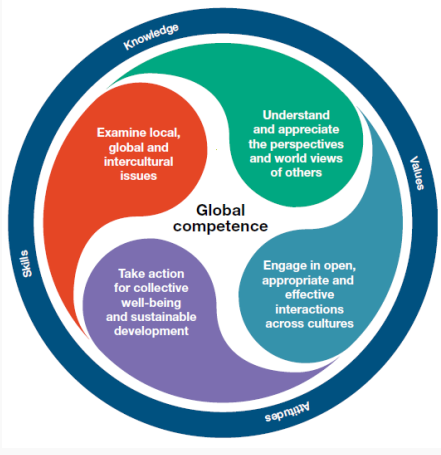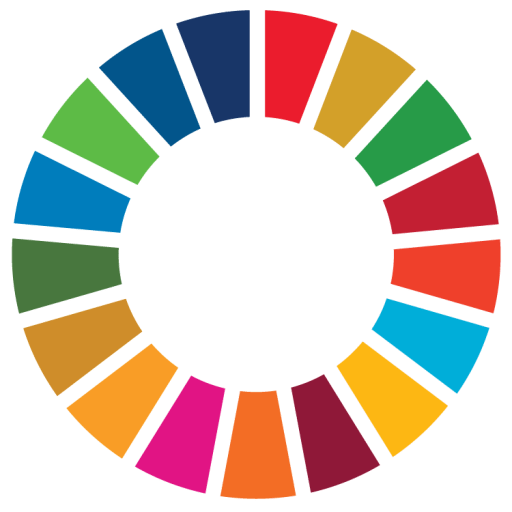Are Scotland’s students ready to thrive in an interconnected world?
In 2018, Scotland opted to participate in the first Programme for International Student Assessment (PISA) ‘global competence’ assessment. Today, the results have been published in a new OECD report: ‘Are Students Ready to Thrive in an Interconnected World?‘
We’re delighted that the report has found that pupils in Scotland have a higher than average awareness of global issues.
What does the OECD mean by ‘global competence’?
‘Global competence is the capacity to examine local, global and intercultural issues, to understand and appreciate the perspectives and world views of others, to engage in open, appropriate and effective interactions with people from different cultures, and to act for collective well-being and sustainable development.’ OECD 2018 https://youtu.be/akQCvg6rS6o

How was the research conducted?
Students in 27 of the PISA participating countries, including Scotland, took both a global competence assessment and questionnaire in 2018. In Scotland, almost 3,000 15 year olds took part in these tests and questionnaires as part of PISA 2018. Global competence questions were included in the assessments, as well as questions on attitudes and beliefs in the student questionnaire. Scotland also took part in the PISA Teacher Questionnaire; which included questions on teacher beliefs and practices in the classroom.
What do these results tell us?
Scotland’s global competence results have given us some important insights into Learning for Sustainability in Scotland, with the results contributing to our understanding of how Scotland is moving towards the aims of the Vision 2030+ report and Learning for Sustainability Action Plan – and supporting Scotland’s contribution to the UN Sustainable Development Goals.
‘Our learners are committed to the principles of global citizenship, social justice and equity, democratic participation and living within the ecological limits of our planet’. Vision 2030+ 2016
The results show the impact of Scotland’s placing Learning for Sustainability as an important component of Curriculum for Excellence, an entitlement for learners and a core part of teachers’ professional standards. Learning for Sustainability supports the development of knowledge, skills and the values at the heart of the curriculum’s four capacities; supporting young people to contribute to build a socially-just, sustainable and equitable world.
Read the Report here: https://www.oecd.org/pisa/pisa-2018-global-competence.htm and highlights from Scotland’s results here https://www.gov.scot/publications/programme-international-student-assessment-pisa-2018-highlights-scotlands-results-global-competence/
Participating countries and economies: Albania, Brunei Darussalam, Canada, Chile, Colombia, Costa Rica, Croatia, Greece, Hong Kong (China), Indonesia, Israel, Kazakhstan, Korea, Latvia, Lithuania, Malta, Morocco, Panama, Philippines, The Russian Federation, Scotland (United Kingdom), Serbia, Singapore, The Slovak Republic, Spain, Chinese Taipei and Thailand.
The countries/economies that took the student’s global competence questionnaire only are: Albania, Argentina, Australia, Austria, Baku (Azerbaijan), Belarus, Bosnia and Herzegovina, Brazil, Brunei Darussalam, Bulgaria, Canada, Chile, Colombia, Costa Rica, Croatia, Cyprus, Dominican Republic, Estonia, France, Germany, Greece, Hong Kong (China), Hungary, Iceland, Indonesia, Ireland, Israel, Italy, Jordan, Kazakhstan, Korea, Kosovo, Latvia, Lebanon, Lithuania, Macao (China), Malaysia, Malta, Mexico, Montenegro, Morocco, New Zealand, North Macedonia, Panama, Peru, Philippines, Poland, Portugal, The Republic of Moldova, Romania, The Russian Federation, Saudi Arabia, Scotland (United Kingdom), Serbia, Singapore, The Slovak Republic, Slovenia, Spain, Switzerland, Chinese Taipei, Thailand, Turkey, Ukraine, The United Arab Emirates, Uruguay and Viet Nam.


